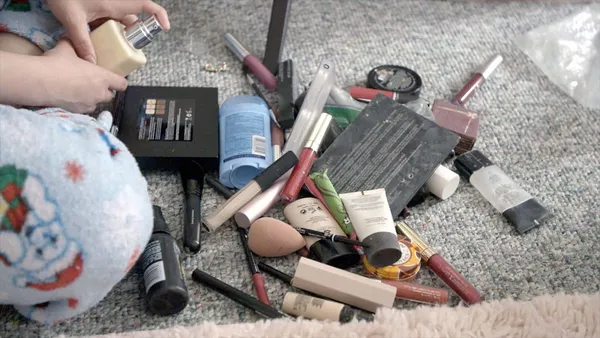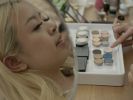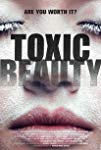Eye For Film >> Movies >> Toxic Beauty (2019) Film Review
Toxic Beauty
Reviewed by: Jennie Kermode

How many cosmetic and skincare products do you routinely use? For many men, the instinctive answer with be "none," but they may be forgetting soap, shampoo, shaving cream and so on. For most women, the number is really quite high. It's likely to include moisturiser, concealer and deodorant even for those who don't bother with things like mascara, eyeshadow or lipstick.
How much do you know about what's in all those things?

If you live in an EU country, you're relatively safe - the regulations on the industry are quite tight. In fact, most countries require strict testing before new products can be released onto the market. The US, however, does not - and the average American woman spends $3,000 on products like these every year. Phyllis Ellis' documentary explores the concerns that customers, experts and industry insiders have about this, and its possible connection to rising rates of infertility and certain diseases.
Medical student Mymy Nguyen is young, healthy-looking and naturally pretty, but she's not white so she has never quite been able to achieve the mainstream US beauty standard, and she explains that her mother taught her early in life that she needed to apply numerous different products to her skin in order to be clean and attractive. She doesn't see this as entirely negative - its a means of enhancing confidence, she says, and not something that should be taken away from people - but after she realised that a medical scare she suffered might be connected to her cosmetic choices, she started to worry. The film follows her as she undergoes a two day detox, followed by two days of using her usual products, followed by two days of using 'clean' products (without synthetic chemicals), with blood tests being taken throughout. This provides a measure of how certain chemicals enter the bloodstream which provides context for the discussions taking place throughout.
These discussions and interviews involve scientists, lawyers, regulators, politicians, industry whistleblowers and people with serious health problems that have been linked to the industry, at least one of whom has since passed away. They include Deane Berg, who took skincare giant Johnson & Johnson to court to contend that its body powder was a factor in her ovarian cancer, an unusual case that will intrigue viewers with an interest in law. The film is unusual in the intelligence that it brings to bear across a multiplicity of disciplines, and although it leaves a few questions unanswered (why, for instance, is the US low down in international league tables for ovarian cancer if its population is using unusually high quantities of triggering compounds?), overall it's very thorough and backs up its arguments well. It also weaves together its different strands effectively to create a convincing whole.
From phthalates in face creams to lead in lipsticks, the film details a remarkable variety of toxic substances being applied directly to human bodies on a day to day basis, many of them also leaching out into the wider environment. Some have cumulative effects. A group of women who work in a nail salon describe how it felt when they suddenly became aware that a lot of them had similar health problems. There's also a look at the industry practice of altering toxic molecules so that they fall just outside the definition of those that have been banned, allowing companies to outpace the regulators.
Moving around from one subject to another, Ellis ensures that no viewer will be stuck for too long struggling with something that's difficult to grasp, and some of the more complex scientific issues are explained with impressive lucidity. The presence of seriously ill people and those who have lost loved ones keeps the importance of all this talk in perspective without become so emotive as to interfere with viewers' capacity to draw sensible conclusions.
Above all else, Ellis' film raises this question: why doesn't the issue of poisons in the products we use day to day get more attention? Screening in cinemas within weeks of Todd Haynes' Teflon pollution drama Dark Waters, Toxic Beauty may represent the start of a conversation that's long overdue.
Reviewed on: 21 Jan 2020
















